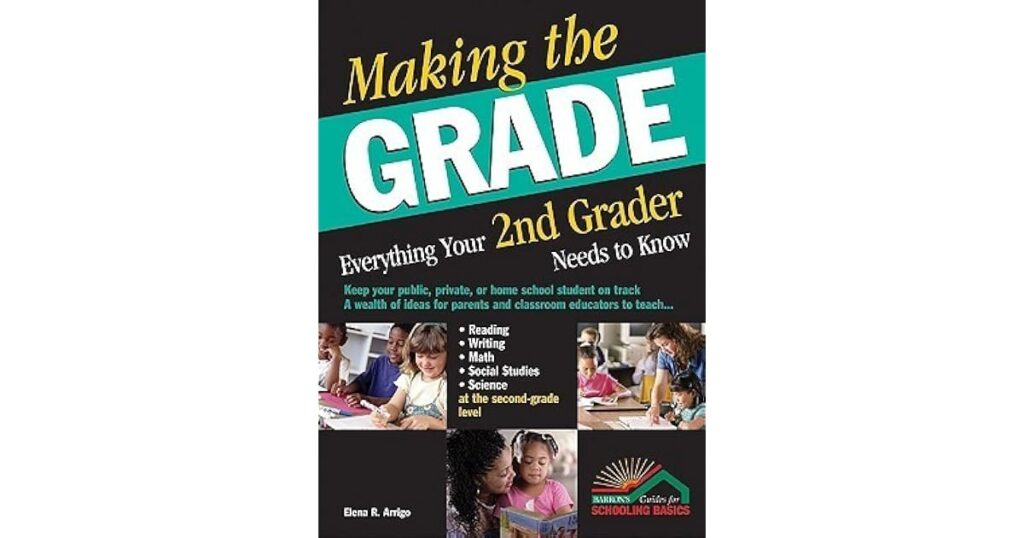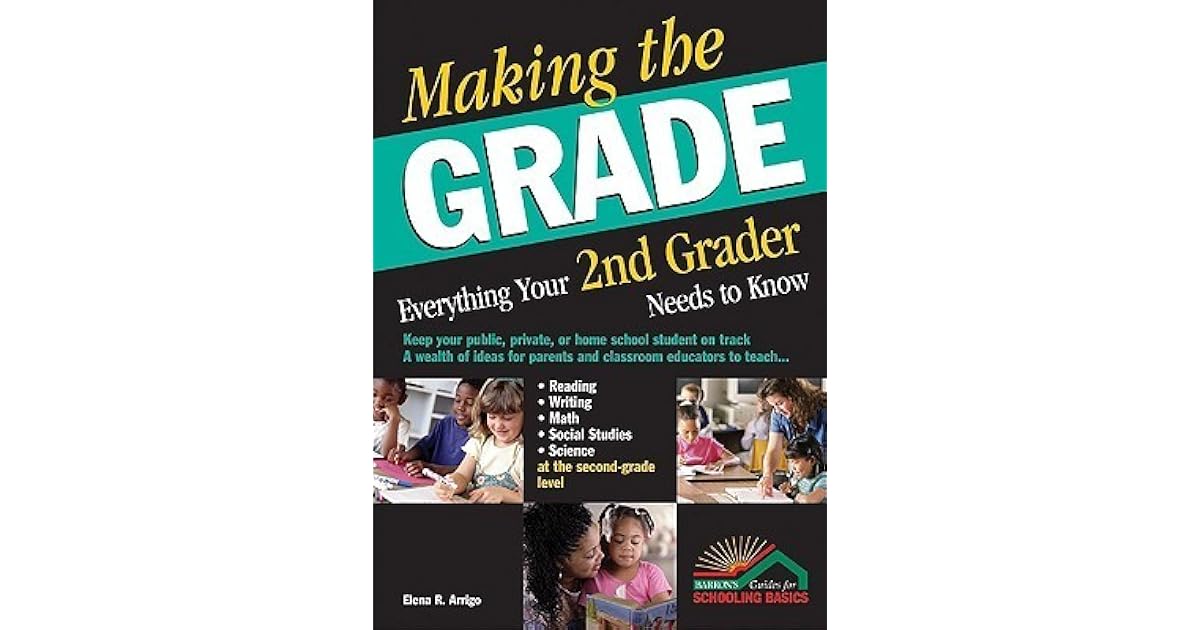
What Does a First Grader Need to Know? A Comprehensive Guide for Parents
Entering first grade is a significant milestone in a child’s academic journey. As parents, understanding what a first grader needs to know can help you support their learning and development effectively. This guide provides a comprehensive overview of the key skills and concepts typically covered in first grade, offering insights and practical tips to ensure your child’s success.
Reading and Language Arts
Reading and language arts are foundational in first grade. Children build upon their kindergarten skills and develop more advanced reading comprehension and writing abilities. Here’s a breakdown of what to expect:
Phonics and Decoding
First graders should strengthen their understanding of phonics, the relationship between letters and sounds. They should be able to:
- Recognize and pronounce consonant blends and digraphs (e.g., bl, ch, sh).
- Decode words with short and long vowel sounds.
- Use phonics to sound out unfamiliar words.
Reading Comprehension
Comprehension is crucial for understanding what they read. First graders should be able to:
- Retell the main events of a story in sequence.
- Identify the main characters and setting.
- Answer questions about the story using evidence from the text.
- Make simple inferences based on the text.
Vocabulary
Expanding vocabulary is essential for reading comprehension and communication. First graders should:
- Learn new words and their meanings.
- Use context clues to understand unfamiliar words.
- Identify synonyms and antonyms.
Writing
First-grade writing focuses on developing basic writing skills. Children should be able to:
- Write simple sentences with correct capitalization and punctuation.
- Write short narratives with a beginning, middle, and end.
- Use descriptive language to add details to their writing.
- Practice handwriting and letter formation.
Mathematics
First-grade math introduces more complex concepts and builds a strong foundation for future math skills. Key areas include:
Number Sense
Understanding numbers and their relationships is fundamental. First graders should be able to:
- Count to 120, starting at any number less than 120.
- Read and write numerals to 120.
- Understand place value (tens and ones).
- Compare numbers using terms like greater than, less than, and equal to.
Addition and Subtraction
First graders develop fluency in addition and subtraction within 20. They should be able to:
- Solve addition and subtraction problems using various strategies (e.g., counting on, counting back, using number lines).
- Understand the relationship between addition and subtraction.
- Solve word problems involving addition and subtraction.
Geometry
Introduction to basic geometric shapes and concepts. First graders should be able to:
- Identify and describe two-dimensional shapes (e.g., squares, circles, triangles, rectangles).
- Identify and describe three-dimensional shapes (e.g., cubes, spheres, cones, cylinders).
- Compose new shapes from existing shapes.
Measurement
Understanding basic measurement concepts. First graders should be able to:
- Measure lengths using non-standard units (e.g., paper clips, blocks).
- Tell time to the hour and half-hour using analog and digital clocks.
- Identify and compare the values of coins (pennies, nickels, dimes, quarters).
Science
First-grade science introduces basic scientific concepts and encourages exploration. Key areas include:
Life Science
Learning about living things and their environments. First graders should:
- Identify the basic needs of plants and animals.
- Understand the life cycle of plants and animals.
- Learn about different habitats and the animals that live there.
Earth Science
Exploring the Earth and its features. First graders should:
- Identify different types of weather.
- Understand the water cycle.
- Learn about the Earth’s landforms (e.g., mountains, rivers, oceans).
Physical Science
Introduction to basic concepts of matter and energy. First graders should:
- Identify different states of matter (solid, liquid, gas).
- Learn about simple machines (e.g., levers, pulleys).
- Understand the concept of energy and its different forms.
Social Studies
First-grade social studies introduces basic concepts about communities, cultures, and history. Key areas include:
Community
Understanding the roles and responsibilities of community members. First graders should:
- Identify different types of communities (e.g., urban, suburban, rural).
- Learn about the roles of community helpers (e.g., teachers, firefighters, police officers).
- Understand the importance of rules and laws.
Culture
Exploring different cultures and traditions. First graders should:
- Learn about different cultures around the world.
- Understand the importance of diversity and respect for others.
- Explore different traditions and customs.
History
Introduction to basic historical concepts. First graders should:
- Learn about important historical figures.
- Understand the concept of time and chronology.
- Explore historical events and their significance.
Social and Emotional Development
Beyond academics, social and emotional development is crucial for first graders. They should:
- Develop self-confidence and self-esteem.
- Learn to cooperate and collaborate with others.
- Develop problem-solving skills.
- Learn to manage their emotions and behavior.
- Practice empathy and respect for others.
Practical Tips for Parents
Supporting your child’s learning at home can make a significant difference. Here are some practical tips:
- Read aloud regularly: Reading aloud exposes children to new vocabulary and helps develop reading comprehension skills.
- Practice math skills: Use everyday situations to practice math skills (e.g., counting objects, measuring ingredients).
- Create a learning-friendly environment: Provide a quiet and organized space for your child to do homework and study.
- Encourage curiosity: Encourage your child to ask questions and explore their interests.
- Communicate with the teacher: Stay in communication with your child’s teacher to stay informed about their progress and any areas where they may need extra support.
Addressing Learning Challenges
If you notice that your child is struggling in a particular area, it’s important to address the issue promptly. Here are some steps you can take:
- Talk to the teacher: Discuss your concerns with the teacher and ask for suggestions for extra support.
- Seek professional help: If necessary, seek professional help from a tutor, educational psychologist, or other specialist.
- Provide extra practice: Provide extra practice in the areas where your child is struggling.
- Be patient and supportive: Learning takes time, so be patient and supportive of your child’s efforts.
The Importance of Play
While academics are important, play is also essential for a first grader’s development. Play helps children develop creativity, problem-solving skills, and social skills. Encourage your child to engage in a variety of play activities, such as:
- Outdoor play: Running, jumping, and playing games outdoors helps children develop gross motor skills and stay active.
- Creative play: Drawing, painting, and building with blocks helps children develop creativity and imagination.
- Social play: Playing with other children helps develop social skills and cooperation.
Understanding what a first grader needs to know involves recognizing the multifaceted aspects of their development – academic, social, and emotional. By actively supporting their learning journey and fostering a nurturing environment, you can set them up for a successful and fulfilling first-grade experience.Remember, every child learns at their own pace. Focus on celebrating their progress and encouraging their love of learning. Recognizing what a first grader needs to know also means understanding their individual strengths and weaknesses, and tailoring your support accordingly. The core curriculum for what a first grader needs to know includes reading, writing, mathematics, science, and social studies, each playing a pivotal role in their educational foundation. Knowing what a first grader needs to know allows parents to engage more effectively with their child’s education, asking informed questions and providing targeted assistance. It’s important to consider what a first grader needs to know not just in terms of academic content, but also in terms of social skills and emotional intelligence. A well-rounded first grader is one who is not only academically proficient but also socially adept and emotionally resilient. A key part of what a first grader needs to know is how to learn and adapt to new situations, fostering a lifelong love for learning. Preparing your child for what a first grader needs to know can be an exciting journey, full of discovery and growth for both of you. The skills and knowledge what a first grader needs to know set the stage for future academic success and personal development. So, embrace the challenge and help your child thrive in their first-grade adventure!
[See also: First Grade Reading Comprehension Strategies] [See also: Fun Math Activities for First Graders]

